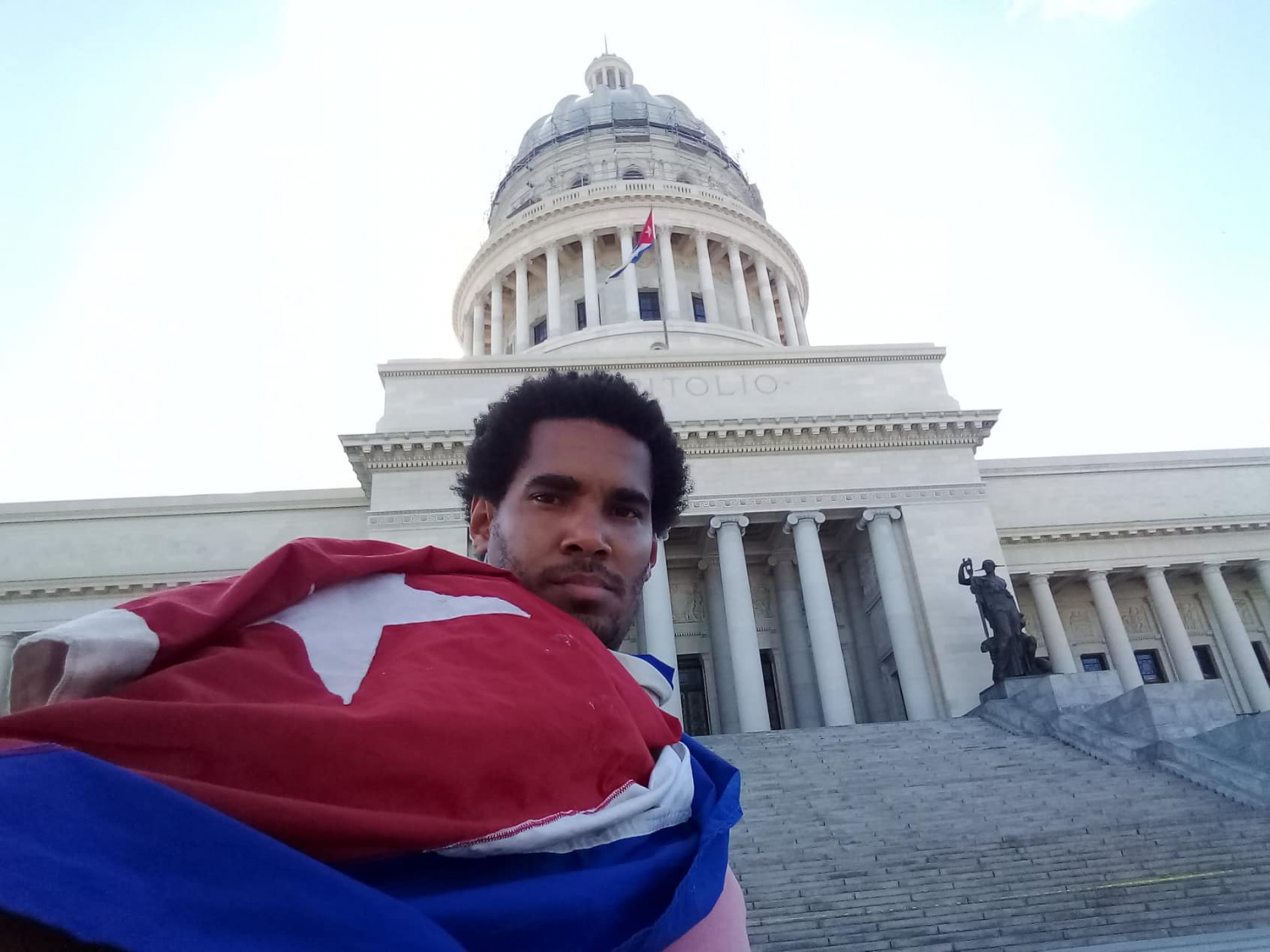
The Popular Municipal Court of Central Havana on June 24 sentenced artists Luis Manuel Otero Alcántara and Maykel Castillo Pérez to five and nine years in prison, respectively. Activist artist Otero Alcántara was sentenced for contempt, public disorder, and “insulting symbols of the homeland”—a reference to his public performances involving the Cuban flag. Rapper Maykel Castillo was found guilty of contempt, public disorder, and “defamation of institutions, heroes and martyrs.” The latter charge relates to a meme Castillo posted on social media last year criticizing Communist Party leaders. The two have 10 days to appeal their sentences.
Erika Guevara-Rosas, Americas director at Amnesty International, said: “Both Luis Manuel and Maykel are artists who have used art as a means of expressing their views on the social, political and economic conditions in Cuba. They are two emblematic examples of how Miguel Díaz-Canel’s government uses the judicial system to criminalize critical voices… The international community must continue to publicly condemn these practices, which openly undermine the full exercise of human rights in the country.”
Otero Alcántara and Castillo are just two of several hundred Cubans sentenced to prison in recent weeks on charges related to last year’s mass protests. Earlier this month, the Cuban government announced that it had “sanctioned” 381 people in such cases, with 297 sentenced to prison terms of between five and 25 years. (ArtNet News)
Photo: Hyperallergic





Cuba: dissident journalist gets five years
Cuban journalist and activist Lázaro Yuri Valle Roca—detained since June 2021—was sentenced to five years in prison for “enemy propaganda” on July 30. Other activists charged in the same case were Alien Tijerino Castro, who received four years, Ruslán Hernández Reyes, two years, and Yusniel Milián González, one year. (InfoBae)
New wave of protest in Cuba
A year after nationwide protests against food and medicine shortages were severely repressed by authorities, residents in the eastern town of Nuevitas took to the streets on Aug.19 and 20. Fed up with extended blackouts and worsening economic conditions, protesters called for “freedom” and the resignation of President Miguel Díaz-Canel, before videos circulated of police beating children and arresting protesting parents. (TNH)
New protests break out in Cuba
Protests broke out March 17 in Santiago de Cuba. In video footage posted to Havana Times, police can be seen confronting demonstrators who respond with shouts of “we’re hungry!” and “electricity and food!”